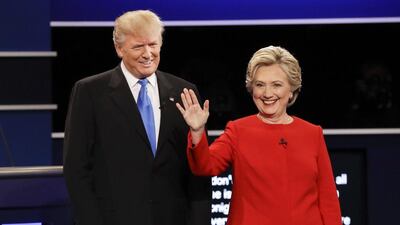Show business, like every other business, is about the numbers. What we care about in Hollywood are how many people watched a television show or went to a movie, how much each project cost to produce and distribute, and, eventually, how much of the profits were sprinkled around town to actors, writers, directors, producers, lawyers, agents and managers.
My first job in Hollywood was on the writing staff of the most popular situation comedy of the time – Cheers – and when our series broadcast its final episode, more than 90 million people tuned in, which was as we say in the business, "an impressive finish". Back then, of course, the world was a lot different. Viewers had fewer choices – the internet was just blossoming into the entertainment industry killer it's become – and people regularly gathered around the television set to watch programmes together, rather than what they do now, which is to flip around and then stare slack-jawed at their phones.
This week, about 80 million Americans tuned in to watch a 90-minute episode of one of the most darkly comic, not-quite-believable political thriller/satire television series ever: the US presidential election. The two stars of that grimly fascinating show, Hillary Clinton and Donald Trump, appeared side-by-side in a very special episode titled The Presidential Debate.
I won't get into the politics or the policy of the show – that would come under the heading of "homework" and, as everyone knows, homework is a terribly boring thing that no one willingly puts up with. Besides, what's interesting about that number – 80 million – is that it indicates that American television viewers, never known for their attentive and engaged interest in politics or policy, were somehow drawn to this particular debate. My guess is, they tuned in to see some fireworks, some yelling, maybe even a little bit of blood, and perhaps a sudden shocking reversal of fortune. In other words, a lot of them tuned in to see the real-life, political equivalent of an episode of Game of Thrones.
As it happened, I was in an airport lounge when the debate was broadcast. There were two large television screens suspended from the wall – one was showing the debate and the other was showing that night’s American football game between the Atlanta Falcons and the New Orleans Saints. (For the record, the Falcons trounced the Saints 45-32, which was roughly the same score as Clinton versus Trump.)
More folks were clustered around the television showing the debate than were watching the football game, but if you didn’t know it you’d swear both groups were watching a hotly-contested sporting match. There were tightly anxious smiles, grimaces, occasional eruptions of enthusiastic cheering, hostile sidelong glances at spectators who were clearly rooting for the other team, and at the end of the entire show – my flight was delayed, so I was spared nothing – a deflated and uneasy atmosphere. The crowds dispersed in glum little clumps, retreating to the seats in the lounge and the phone-charging ports.
It’s rare that a sporting match ends up with both sides disappointed. Even when football matches end in a draw, at least one side feels lucky and relieved. The crowd that gathered to watch the presidential debate in the Newark airport departure lounge, though, didn’t seem happy.
“I just want it all to be over,” I overheard one spectator say to the other. “Me too,” agreed another passer-by. Americans may be divided about their presidential choice, but they are unified on one front: they all want this depressing and dispiriting television show to wrap itself up.
Television viewers around the world have been spoiled by advances in digital technology and streaming video. We all assume that the ability to zap around the dial, fast-forward through the boring bits, binge-watch an entire television series and even choose our own adventure like a video game, is some kind of basic human right. It’s easy, in this technological age where small devices in our hands can conjure up moving pictures that please us, to imagine that we can click unpleasant things out of existence. Don’t like your presidential choices? Just zap them off and click on something else. Want something more fun and uplifting? Scroll through iTunes or Netflix or YouTube and find something lighter, with sunnier skies.
All of us know, deep down, that there’s a difference between entertainment and reality, between scripted programming and news. Unfortunately, over the past year or so, the line between the two has been blurred.
But it was hard to watch the spontaneously assembled audience gathered around the televisions in the airport lounge and not get the impression that it was dawning on many of them, probably for the first time, that the presidential campaign under way isn’t a show at all, but something a lot more depressing. It’s reality. And the worst thing about reality is, there’s no changing the channel.
Rob Long is a writer and producer in Los Angeles
On Twitter: @rcbl

